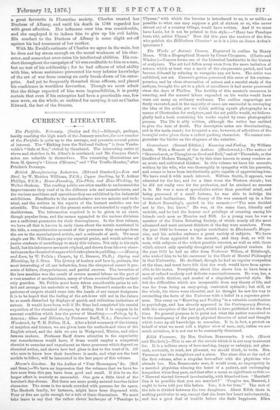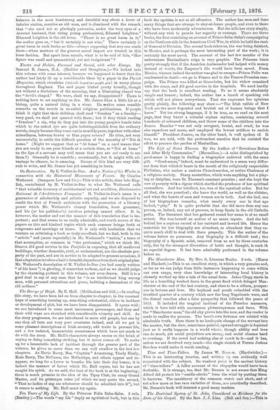Edith Vavasour. By Mrs. Graham Branscombe. S vols. (Hurst and
Blackett.)—This is one of the novels which it is not easy to account for. It is a tedious story of love-making, happy or unhappy, not plea- sant, certainly, to read, not pleasant, we should think, to write. Mrs. Vavasour has two daughters and a niece. The nieeo dies at the end of the first volume, after a singular love-affair with the 'physician who attends her. Mrs. Branscombe sees, it would seem, no impropriety in a married physician winning the heart of a patient, and exchanging keepsakes when they part, and that after a scene so significant as this :— " Maraval started forward involuntarily, with blanched face. Married! Can it be possible that you are married ? "Forgive me, Maraval, I ought to have told you this before. Yes ; it is too true." The rest of the tale is divided between the two daughters. About Edith there is nothing particular to say, except that she loses her heart unfortunately, and has a gocd deal of trouble before she finds happiness. Ellen
behaves in the most headstrong and deceitful way about a lover of inferior station, marries an old man, and is dismissed with the remark that "she need not so glaringly patronise, under the very eyes of a devoted husband, that rising young professional, Edmund Leighton." Edmund Leighton is the old lover. "There is no great harm in it," the author goes on, " but it certainly is not wise." There certainly is great harm in such books as this—always supposing that any one reads them—when matters of the gravest moral import are treated in this loose fashion. But apart from morals, what is to be said of this, "Her figure was small and symmetrical, yet not insignicant"?



































 Previous page
Previous page